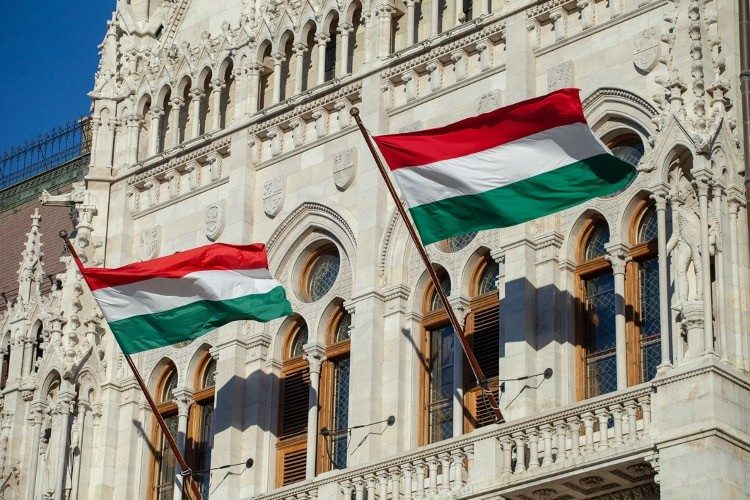
On August 1, Biden administration enforced sanctions on Hungarian passport holders under its Visa Waiver Program on the pretext that Budapest had not dealt with Washington’s security concerns. In turn, conservative media have slammed the Biden government for penalizing Hungary and its people for their conservative-leaning views and opinions about the Russo-Ukrainian crisis that erupted in February 2022.
Under the Visa Waiver Program, Hungarian citizens are permitted to head to America for tourism or business for 90 days or fewer without a U.S. visa. However, they must have an Electronic System for Travel Authorization (ESTA) approval before traveling. The U.S. Embassy in Budapest announced the reduction of the ESTA validity period for travel by Hungarian passport holders from two years to one year, while the validity of an ESTA will be restricted to a single use.
Notably, the U.S. embassy in Budapest asserted that Hungary’s government had not “fully addressed” security concerns broached by Washington. In context, the Hungarian government led by Viktor Orbán, which has been in power since 2010, enabled Hungarians and people of Hungarian origin living overseas to obtain a Hungarian passport as a gesture of solidarity with ethnic Hungarians who lived in countries that had once belonged to the Kingdom of Hungary. This process enabled almost one million people to obtain Hungarian citizenship between 2011 and 2020. Nonetheless, the American embassy in Budapest alleged that the procedures were done “without adequate security measures in place to verify their identities.”
When questioned by journalists, U.S. State Department spokesman Matthew Miller alleged that “valid Hungarian passports were fraudulently obtained by criminals and individuals with no connection to Hungary.”
On August 2, Hungarian Deputy Minister of Internal Affairs Bence Rétvári reacted to the aforementioned American concerns, stating that his government tackled all crime-related issues, depriving all lawbreakers of their Hungarian citizenship. Rétvári also articulated grave concerns about providing data about overseas Hungarian citizens, particularly those in Ukraine, as there were risks that the United States would leak such data to Kyiv. As a result, Hungarians living in Ukraine could face dire consequences, as Ukraine has imposed a ban on dual citizenship in Ukraine. The minister then stated that Budapest would not kowtow to Washington’s request.
The Hungarian weekly Mandiner claimed that America had requested details on Hungarian dual citizens living in Serbia and Ukraine and threatened Budapest with taking Hungary off the Visa Waiver Program altogether.
Meanwhile, analysts from Alapjogokért Központ have opined that America is mounting pressure on the Hungarian government to change its resistance to Western ideas on migration, gender ideology, and the conflict in Ukraine. In an interview with Mandiner, these analysts pointed out that Hungary had already put safeguards in place to protect its own national security in relation to obtaining Hungarian citizenship. As a result, they found American security concerns puzzling.
Levente Boros Bánk of the think tank Nézőpont Intézet stated in a statement to the conservative-leaning Magyar Nemzet that recent American actions were “obviously a politically motivated move.” He continued that “US Democrats traditionally don’t sympathize with right-wing governments, especially the Orbán government.”
Furthermore, the Biden administration and U.S. Ambassador to Hungary David Pressman have only complicated matters further, he elaborated, claiming that the recent move was done to penalize Hungary, the only member of the European Union not to align with America when it comes to deploying arms to Ukraine in the conflict against Russia.
Under the presidency of Republican U.S. President Donald Trump, Hungarian-American ties saw better days. Ever since Biden controversially assumed power, his administration has adopted several hostile measures against Hungary, whose leader Orbán publicly supported Trump’s reelection bid for the U.S. presidency in 2020.
For example, Biden did not invite Orbán to his so-called Summit for Democracy in 2021 and 2023, making Orbán the only EU member state leader not to get an invitation. For some time, the American government has slammed Hungary over its apparent lack of support for Ukraine, as well as over its domestic policies promoting conservative moral values.
Shea Bradley-Farrell, a foreign policy and national security expert, questioned if the American government’s appointment of David Pressman as ambassador to Hungary was done to provoke Hungary rather than work toward enhancing bilateral relations.
Besides, the U.S. State Department criticized Hungary for alleged “serious restrictions on freedom of expression and media,” among other things. The newspaper Magyar Nemzet pointed out that “freedom of expression and media” did not appear to apply to the embassy of Pressman, which took issue with conservative media outlets slamming America’s latest visa restrictions as “visa sanctions.” The U.S. embassy in Hungary even asked that Magyar Nemzet amend the article’s title.
During a speech on July 22, Hungarian leader Orbán accused the EU of selecting the strategies of “decoupling” and “de-risking” instead of connecting to the world, thus losing its global competitiveness.
Orbán stated that the EU is “rich and weak,” and is alienating itself in an uncertain world, quoting the International Monetary Fund’s (IMF) report, which predicted that neither the United Kingdom nor France nor Italy will be among the world’s 10 largest economies by 2030, while Germany was poised to fall to 10th place.
Also, Orbán pointed out that prior plans to have a free-trade area from “Lisbon to Vladivostok” have been substituted by the EU’s actions that are isolating Europe from Russia through sanctions.
“Of course, you can decouple the EU from Russian energy, but Russian raw materials will be bought by someone else, whilst we bear the inflation costs and lose our competitiveness.”
The Hungarian leader stated that large Western European companies did not mimic the EU in their measures against Russia. For instance, out of the roughly 1,400 European companies doing business in Russia, only 8.5 percent have left the Russian market since the start of the Ukraine crisis.



